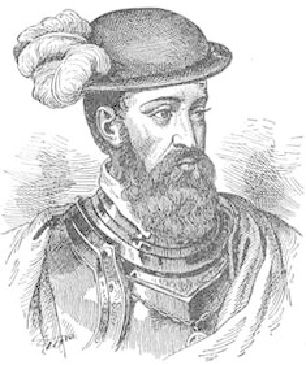Travel Reference
In-Depth Information
plans. He arrived early at Cajamarca and hid his soldiers and horses in houses around the
town square. While the Inca (the emperor who ruled by divine descent) listened, a Spanish
priest read aloud in Spanish and Latin a Proclamation that was required prior to any con-
quest.
Figure 21.3. Francisco Pizarro
The Proclamation (
The Requerimiento
)
was distilled from arguments at the Spanish
court: Did the Spanish have a moral right to make war and conquer those who had done
them no harm? The conquest of Moors received church sanction; after all, they were en-
emies of Christ. But innocent people who had never heard of Christ? Conquest was per-
missible so long as they were given the opportunity to submit to the Church of Rome, to
the Savior, and to the king who was His earthly servant. So, at Cajamarca, on November
16, 1532, a priest stepped forward and in Spanish began the long Proclamation outlining
the history of a world awaiting the Messiah, the special place of the Church and the Span-
ish monarchs in that world, and calling on all those who heard the Proclamation to will-
ingly and freely accept Christ, the obligations of Christianity, and obedience to the Spanish
throne: “…But if you do not do this, and maliciously make delay… we shall powerfully
enter your country and make war against you in all ways… and subject you to the yoke and
obedience of the church and of their Highnesses…”
[281]
It is not likely that the Inca or his followers understood the Proclamation, but no matter.
At a signal, guns began to bark, and soldiers rushed out in flashing armor, swinging swords
to deadly effect. Thousands of Indians were killed, and the emperor was a prisoner of

Search WWH ::

Custom Search